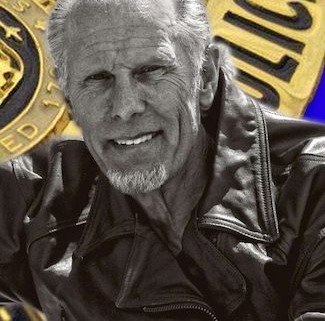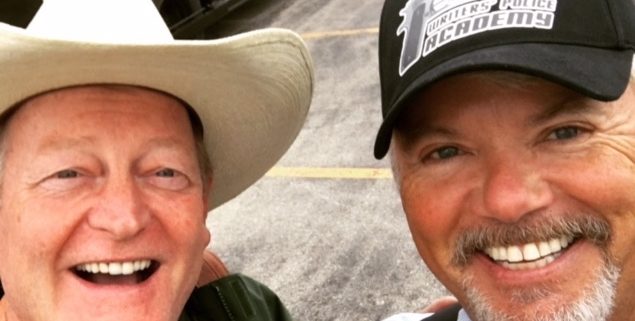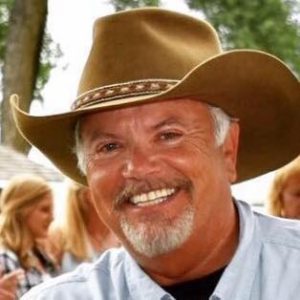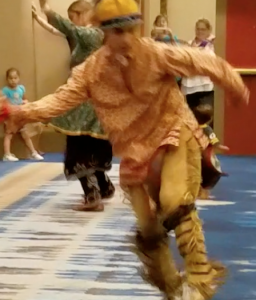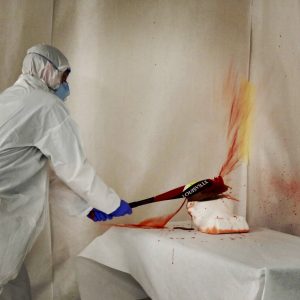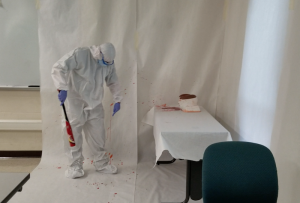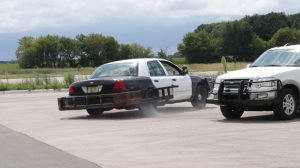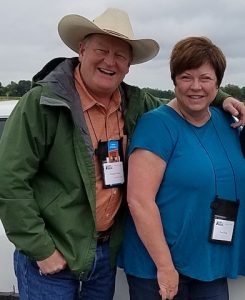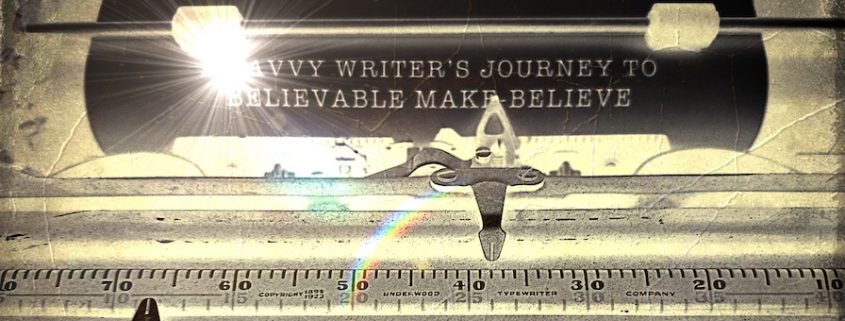Novelist, screenwriter, and television personality, Paul Bishop is a nationally recognized behaviorist and expert in deception detection. He spent 35 years with the Los Angeles Police Department where his high-profile Special Assault Units regularly produced the highest number of detective initiated arrests and highest crime clearance rates in the city. Twice selected as LAPD’s Detective of the Year, he currently conducts law enforcement related seminars for city, state, and private agencies. Paul has written numerous scripts for episodic television and is the author of fifteen novels, including the award-winning Lie Catchers and five books in his LAPD Homicide Detective Fey Croaker series.
Q. What’s the most common mistake made in books, movies or TV regarding interview & interrogation techniques?
A. Where to start … They do so much wrong. How about the most egregious and most common misconception- good cop, bad cop. You’ve seen it enacted over and over on every TV cop show ad infinitum. One detective is the out of control violent bad cop while his partner is the sympathetic good cop who is trying to help the suspect. However, the good cop can only control the rabid bad cop if the suspect confesses or gives up whatever information he’s hiding.
This is a straight-up violation of an individual’s 5th Amendment right against compelled self-incrimination. Not only would any evidence or admissions obtained through this method be thrown out of court, the cops who participated would themselves be arrested, prosecuted, and sent to jail for civil rights violations.
Q. What is your favorite method of interrogation? What works best for you?
A. Interrogation is a very intimate art, so when you see fictional TV cops, or even real cops on shows like 48 Hours, sitting on the opposite side of the interrogation room table from the suspect, you have to ask how the interaction between the suspect and the detective be construed as intimate.
I’m different, very low key. I rarely raise my voice in an interrogation, but I do vary the tone and intonation of my voice depending on what I’m trying to achieve.
I also rarely conduct interrogations in the classic interrogation room, as the room itself carries so much negative baggage. I’ll chose where to interrogate a suspect (house, work, a park, Starbucks) based on what I’m trying to achieve. If I do use the interrogation room, I have the table removed and I sit directly across from the suspect, operating in the zero to twelve-inch personal zone we reserve for those people we are most intimate with. I have a relatively short period of time to get a suspect to tell me their deepest darkest secrets, things that can get them sent to jail for a very long time. You are not going to tell those things to somebody you aren’t in an intimate relationship with, so I have to establish a believable false intimacy in order to coax out the truth.
Q. Are interrogation methods, such as the Reid Technique, susceptible to eliciting false confessions?
A. While the Reid Technique is an accusatory, confrontational process it isn’t any more prone to eliciting false confessions than any other legal technique. The biggest factor in false confessions is fatigue. In over 90% of cases where false confessions have been obtained, the interrogations have lasted over 10 hours-fatigue sets in on both the interrogator and the subject and mistakes get made. There are however, numerous ways to avoid false confessions and bulletproof your interrogation.
Q. Why is it important that writers learn proper interrogation methods?
A. Because being able to capture the essence of a real interrogation can be a hugely dramatic process that can deepen character, motivation, and story exponentially. Interrogation strips down the facades, and a writer who understands the process and how it works can make the scenes riveting.
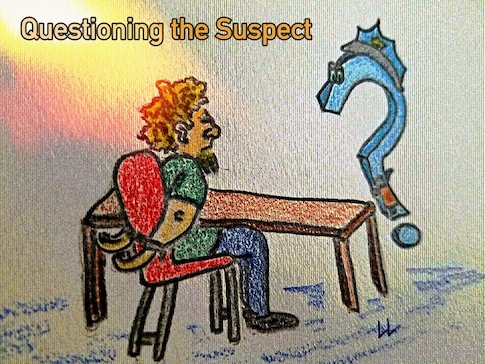 Q. Can anyone be trained to be an effective interrogator or are certain inherent personality traits and talents essential for success?
Q. Can anyone be trained to be an effective interrogator or are certain inherent personality traits and talents essential for success?
A. I can teach anyone who is interested to be a skilled interrogator. Good interrogators take those skills and apply their own inherent personality in how they use them. Great interrogators, however, have to make a choice, because greatness involves empathy and that is a dark and dangerous path to tread, especially when it leads to the truth.
Q. Are any of the characters in your novels created in your own image?
A. Almost all my main characters have some part of me in them. It’s what I use to bring them alive. In my latest book, Lie Catchers, there is a great deal of me in both interrogators, Ray Pagan and Jane Randall, but there are also those things the characters channel through the creative process.
Q. Given your background, what is the hardest part of authoring a work of fiction?
A. The same as any other writer-putting my butt in the chair every day and coaxing words out of a cold, unfriendly keyboard.
Q. Are there any commonalities between the challenges an interrogator faces and those an author faces?
A. To be successful both involve getting to the truth. The truth is a movable point. It is always about perspective. As an interrogator, I will never get The Truth, but I must try to get as objectively close as I can even if I don’t like it. As a writer, I strive for a different type of truth-I want the truth in a correct sequence of words, I want truth of character and motivations, I want to expose the truth of our world and in our lives through the window of fictional truth. I write fiction. My job is to entertain, but my goal is to make readers think. If a reader can find the truth of themselves and their real-world challenges in my world of fictional truths, hopefully they will come away being both entertained and, perhaps, understanding themselves better.
* Interview conducted by author Linda Lovely, Writers’ Police Academy/MurderCon coordinator. LindaLovely.com
‘Truth or Lies: The Art of Interrogation’ to be presented by master interrogator Paul Bishop at …
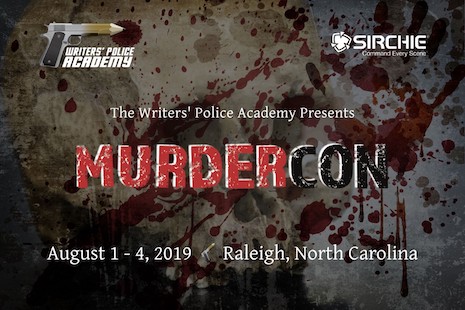
Do you know the truth when you hear it or see it? Join nationally recognized behaviorist, interrogation expert, and experience LAPD detective Paul Bishop as he guides you into the intimate world of interrogation—where success or failure is determined before the first question is asked.
Understand the psychology of deception; what constitutes a successful interrogation; how an interrogator controls and uses a suspect’s vocal cues and physical gestures to determine truth from lies; how false confessions are avoided; how to build rapport; how interrogators deal with multiple suspects, gang members, and other hardcore suspects. Discover how these techniques can be applied in your everyday life when dealing with salesmen, difficult co-workers, or even family members. Know the ‘truth’ when you hear it and see it—and what to do once you know it.

Sign up today to reserve your spot!

